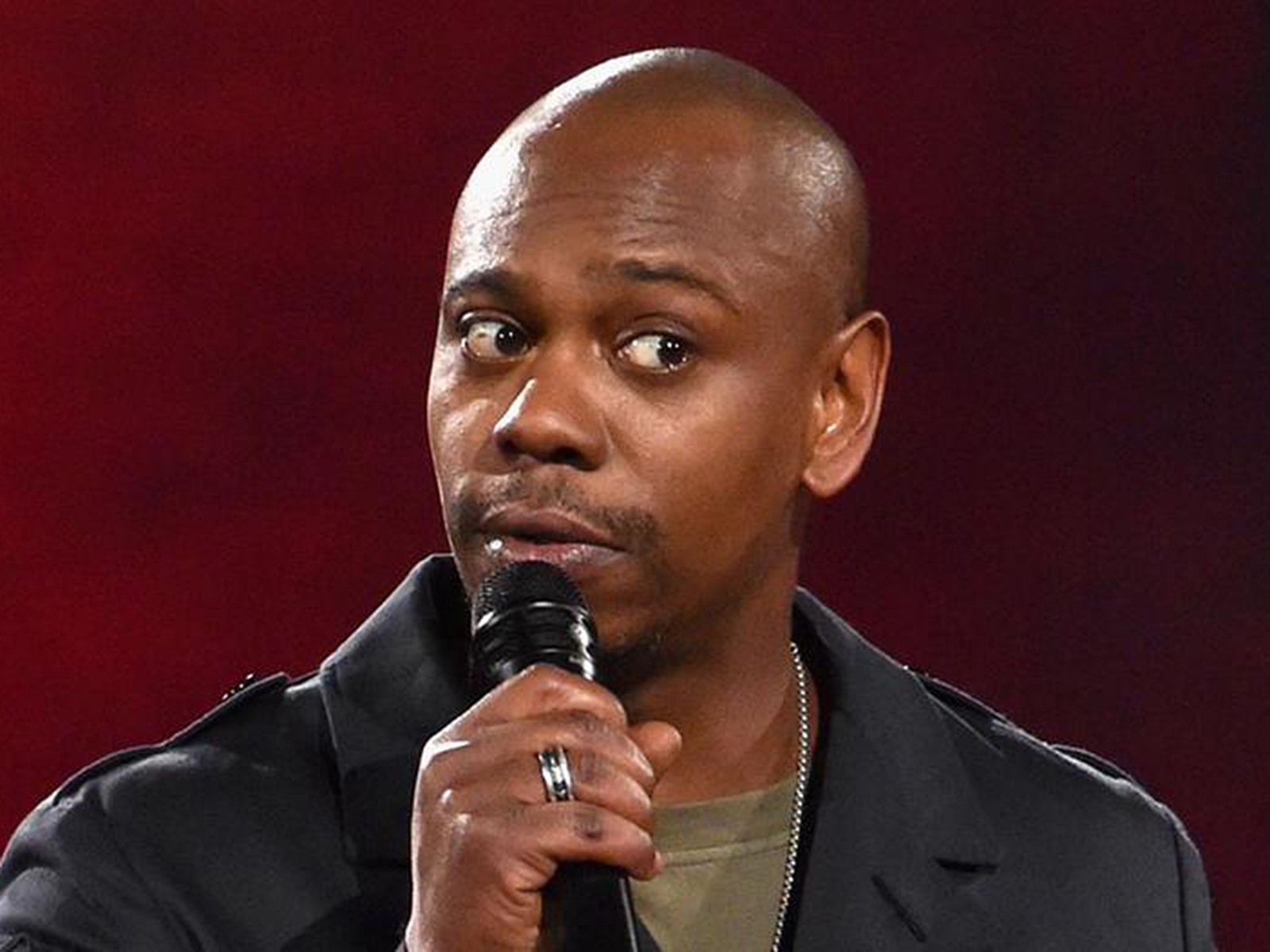
- Film
Docs: “Dave Chappelle: This Time This Place” Rocks Radio City
“What a shit year it was,” Dave Chappelle said by way of greeting the live audience. “I’m so sorry if you lost someone, or lost something, during this pandemic. We did what we could.”
The occasion: the world premiere of his new documentary whose title remained unknown until the first screening on Saturday night. A packed crowd of nearly 6000, fully vaccinated and maskless, attended his show at the iconic Radio City Music Hall, which had been closed for 16 months due to COVID-19.
Chappelle had to comment on the crisis, which is still going on, but his speech also was sort of a natural extension of the documentary, which was listed as untitled until the moment in which the opening credits rolled.
The film is directed by the acclaimed Steven Bognar and Julia Reichert, who recently won the Best Documentary Feature Oscar for American Company (produced by the Obamas’ company). The documentary chronicles Chappelle’s extraordinary efforts to hold a series of outdoor comedy shows in 2020, one of the worst years in American history. The events took place in a cornfield near his home, in the small town of Yellow Springs, Ohio.
It just happened that the directors were also his neighbors, in Ohio, recalled the comedian. “I knocked on their door, the same way that other Black people do when they’re having a barbecue.”
“We saw him in the grocery store, and Dave told us, ‘I’m going to try something. A week of outdoor comedy shows. I have a friend who has a field, and you need to document it,’” Reichert told the audience. Instead of weeks, the shows ran for months.
“Documentary film … comedy, you may think (they are) pretty different. But it’s all about storytelling and trying to find the truth,” Reichert elaborated. The film weaves in challenges faced by the town during the pandemic and the emotion of the Black Lives Matter movement that exploded after the murder of George Floyd (in May 2020).
Virtually every revered comedian made their way through town, including Jon Stewart, Chris Rock, Kevin Hart and Trevor Noah. They are shown as they behave off stage, in their downtime; some are swimming, while others are kayaking on a nearby river.
Chappelle fought to keep the lively events going, despite the objection of some of the town’s residents, who tried to shut it down, as the number of positive COVID tests were at the peak there – and all over the country. The feature includes interviews with local business owners and various activists.
Ultimately, what unfolds on screen is much more than a concert-show, it is a record of events that explore the remarkable resilience of a typical small-town in America in the midst of an existential crisis.
Like previous Dave Chappelle works, on the big and small screen, some of the content is raw and explosive, which might change when a distributor comes on board unless it is one of the giant streamers.
In mixing rousing performances and communal reliance, Dave Chappelle is essentially a pandemic survival story, focusing on the many travails – and some joys – of comedians’ lives and work under siege, in challenging times.
As the documentary explains, the comedian derived his activist spirit from his father, who was a scholar that made a point to create what he described as “context for art.”
Chappelle himself is observed not only on stage but also offstage, including in his efforts to create relevant yet funny material. This proved to be an admittedly tough task also evident in the material of the late-night shows of mainstream television.
The documentary conveys in colorful nuance and sharp details the essence of one long and dramatic period: the summer of 2020. The efforts of a zoning inspector to shut down the events are contrasted with cornfield owner Steve Wirrig’s recurring attempts to keep them going while abiding by safety measures.
Chappelle’s comic pieces run parallel to the town’s collapsing economy. Nonetheless, despite some backlash from neighbors, Chappelle’s shows ultimately generated millions of dollars for the town and the region.
Chappelle says in the film: “For a comedian, the idea of no audience is maddening.” And he takes rather seriously his role as a mentor for some younger performers. He advises Mo Amer about his new autobiographical Netflix series and helps Michelle Wolf reveal more about her personal life onstage. The sequences of Wolf, who moved in with Chappelle’s family during the pandemic, provide some of the best moments, as they depict her struggles to find meaning in the new, forced existence.
The filmmakers expertly switch from ordinary backroom talk and performances to the various stage antics, such as actor Chris Rock using Facetime with his fellow star, Kevin Hart.
In the film, Jon Stewart says that Chappelle’s show was his first real interaction in months with other colleagues. The poet Amir Sulaiman performs a rendition of “We Must Win” to a teary-eyed crowd.
Chappelle acknowledges the serious mood with a characteristically snide remark: “All you White folks should feel guilty now.” But then he followed with a more personal note: “I love New York City. I made my name in New York City. I met my wife in New York City. I had two of my three children in New York City. I am proud to be the opening night of Radio City.”
His remarks were followed by a hip-hop concert, showcasing New York artists, such as Talib Kweli, Q-Tip, De La Soul, Fat Joe, Redman, all of whom took the audience by surprise. They all kept the energy and momentum going, as was evident by the exhilarating reactions of Rock, JR, Don Cheadle, Sharon Stone, among other celebs, who attended this one-of-a-kind event.